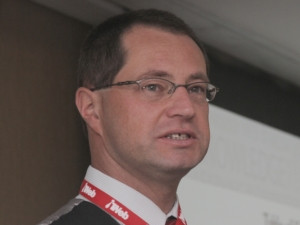
The launch of a broad-based multinational group has added a new dimension to the global aim of bridging the digital divide.
The Alliance for Affordable Internet (A4AI) was launched yesterday with a 30+ member group consisting of various private and public sector players. The coalition's aim is to lead policy and regulatory reform and spur action to drive down artificially high Internet prices in developing countries.
Members of the alliance include the government of Sweden, US state department, the Commonwealth Telecommunications Organisation, UK Department for International Development, Google, and Research ICT Africa.
IDC analyst Spiwe Chireka says it is surprising the South African government does not form part of the initial alliance members group, since the country is ahead of the rest of Africa in terms of data adoption, and will have a lot of knowledge to offer.
However, World Wide Worx MD Arthur Goldstuck says he is doubtful if governments joining alliances of this nature would be beneficial to the alliances, as part of the intention is to put pressure on governments. "If they are inside the alliance, they can moderate that pressure."
Governments in developing markets often have their own broadband policies, or are working on developing broadband policies, which aim at broader deployment of connectivity and reducing the cost of communications, says Dobek Pater, Africa Analysis analyst. "To this extent, [governments] are already involved in promoting wider access to the Internet within their respective jurisdictions. One could argue that by becoming a member of an organisation such as A4AI, they would appear to be interfering in the domestic affairs of other states, which is normally not looked upon favourably."
Cost factor
Ovum analyst Richard Hurst points out that while it is not vital for the South African government to be part of A4AI, it "would do well to take note of the policy guidelines and initiative put forward by the alliance".
According to an A4AI statement, it aims to help Internet access prices fall below 5% of monthly income worldwide, a target set by the UN Broadband Commission. Reaching this goal can help connect the two-thirds of the world not currently connected to the Internet. Members of A4AI have committed to a set of policy best practices that will guide advocacy work at international level, says the alliance.

"Key policy levers to drive prices down include allowing innovative allocation of spectrum, promoting infrastructure sharing, and increasing transparency and public participation in regulatory decisions." The alliance will produce an annual "Affordability Report", with the first edition expected in December.
The A4AI's aim of getting access prices below 5% of monthly income worldwide may be a bit of a stretch for the immediate future, says Hurst. "However, I think that this is a very laudable goal and that, in time, with the right initiative from the private sector and the government, this could be achieved in SA or at least within one or two percentage points."
Goldstuck says 5% of monthly income is a starting point, but in some countries it needs to be far lower. "It is unlikely one can impose a blanket proportion across countries of dramatically varying living and infrastructural standards."
Pater notes the viability of this aim needs to be determined by an econometric study. "The relative pricing depends on disposable income levels within the different markets, and other factors.
"If the average monthly income of a person in SA who does not have access to the Internet is R3 000, for argument's sake, then 5% would equal to R150. We can buy Internet access in SA for this, but it depends how much data a person would want or need to consume monthly. One also needs to look at all other necessary expenditure items from this salary to determine whether the disposable income is sufficient to buy Internet access."
He points out that inexpensive Internet access is already available in SA, but often requires a relatively large upfront expenditure to access the low tariffs.
The issue of making Internet cheaper has been around for a while, but can be seen as "a bit of a narrow view", says Chireka. She notes while the high price of Internet access should undoubtedly be addressed, other aspects are also at play, including availability of content, access to devices and investment into networks. "A more holistic approach is needed."
Not by 2020
Analysts remain sceptical that universal access in SA will be reached by 2020 as indicated by government policy documents. "Universal access in terms of Internet is a very tricky one and depends on the definition of access," says Hurst. "I think that we will see a staged approach to universal access with various milestones along the way. The devil is in the detail, where the access is defined as within walking distance. This is a good first step but I would not refer to this as universal access."
Pater notes that SA does not yet have broadband policy in place, there is a lack of infrastructure deployment in the country, and there is no guidance yet on the awarding of LTE spectrum. "The digital migration may take longer than planned, which will retard the release of the digital dividend spectrum. The other aspect is economic - increasing income levels through economic growth. At the rate we are going, we are not likely to see the lower segments of the society moving up the socio-economic ladder."
"I don't see [universal access] happening in our lifetimes while government sees the Internet as a luxury," says Goldstuck. "Government needs to treat literacy, computer literacy and Internet access as essential services, on a par with electricity."